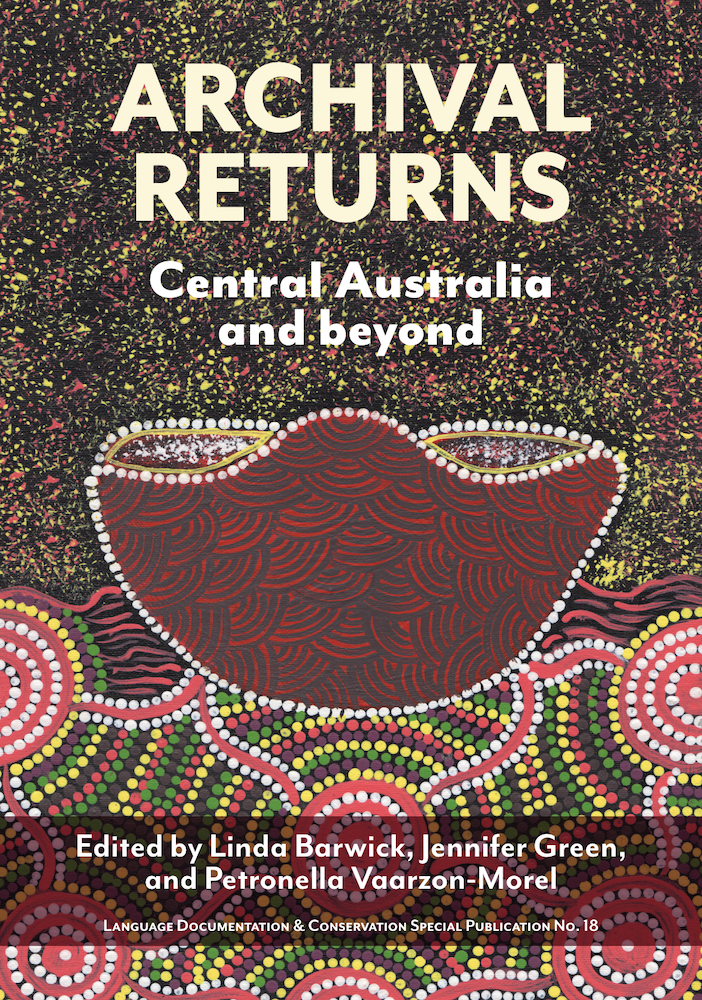Co-published with Sydney University Press
Editors’ preface – Linda Barwick, Jennifer Green, & Petronella Vaarzon-Morel
Conundrums and consequences: Doing digital archival returns in Australia – Linda Barwick, Jennifer Green, Petronella Vaarzon-Morel, & Katya Zissermann
Deciphering Arrernte archives: The intermingling of textual and living knowledge – Jason Gibson, Shaun Angeles, & Joel Liddle
Returning recordings of songs that persist: The Anmatyerr traditions of akiw and anmanty – Jason Gibson
Incorporating archival cultural heritage materials into contemporary Warlpiri women’s yawulyu spaces – Georgia Curran
Enlivening people and country: The Lander Warlpiri cultural mapping project – Petronella Vaarzon-Morel & Luke Kelly
(Re)turning research into pedagogical practice: A case study of translational language research in Warlpiri – Carmel O’Shannessy, Samantha Disbray, Barbara Martin, & Gretel Macdonald
“The songline is alive in Mukurtu”: Return, reuse, and respect – Kimberly Christen
“For the children…”: Aboriginal Australia, cultural access, and archival obligation – Brenda L Croft, Sandy Toussaint, Felicity Meakins, & Patrick McConvell
Working at the interface: The Daly Languages Project – Rachel Nordlinger, Ian Green, & Peter Hurst
“We never had any photos of my family”: Archival return, film, and a personal history – Fred Myers & Lisa Stefanoff
Return of a travelling song: Wanji-wanji in the Pintupi region of Central Australia – Myfany Turpin
Never giving up: Negotiating, culture-making, and the infinity of the archive – Sabra Thorner, Linda Rive, John Dallwitz, & Janet Inyika
Nura’s vision: Nura’s voice – Suzanne Bryce, Julia Burke, & Linda Rive
i-Tjuma: The journey of a collection – from documentation to delivery – Elizabeth Marrkilyi Ellis, Jennifer Green, & Inge Kral
Ever-widening circles: Consolidating and enhancing Wirlomin Noongar archival material in the community – Clint Bracknell & Kim Scott

